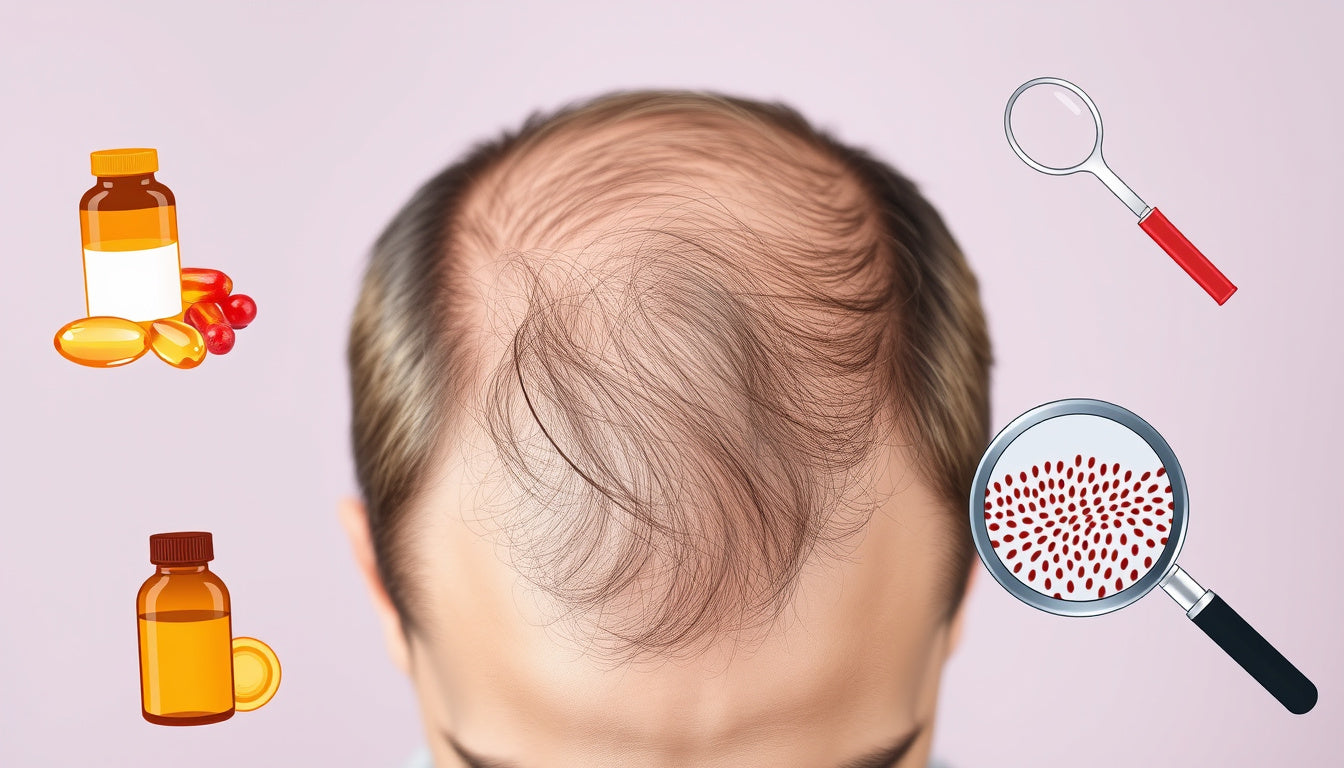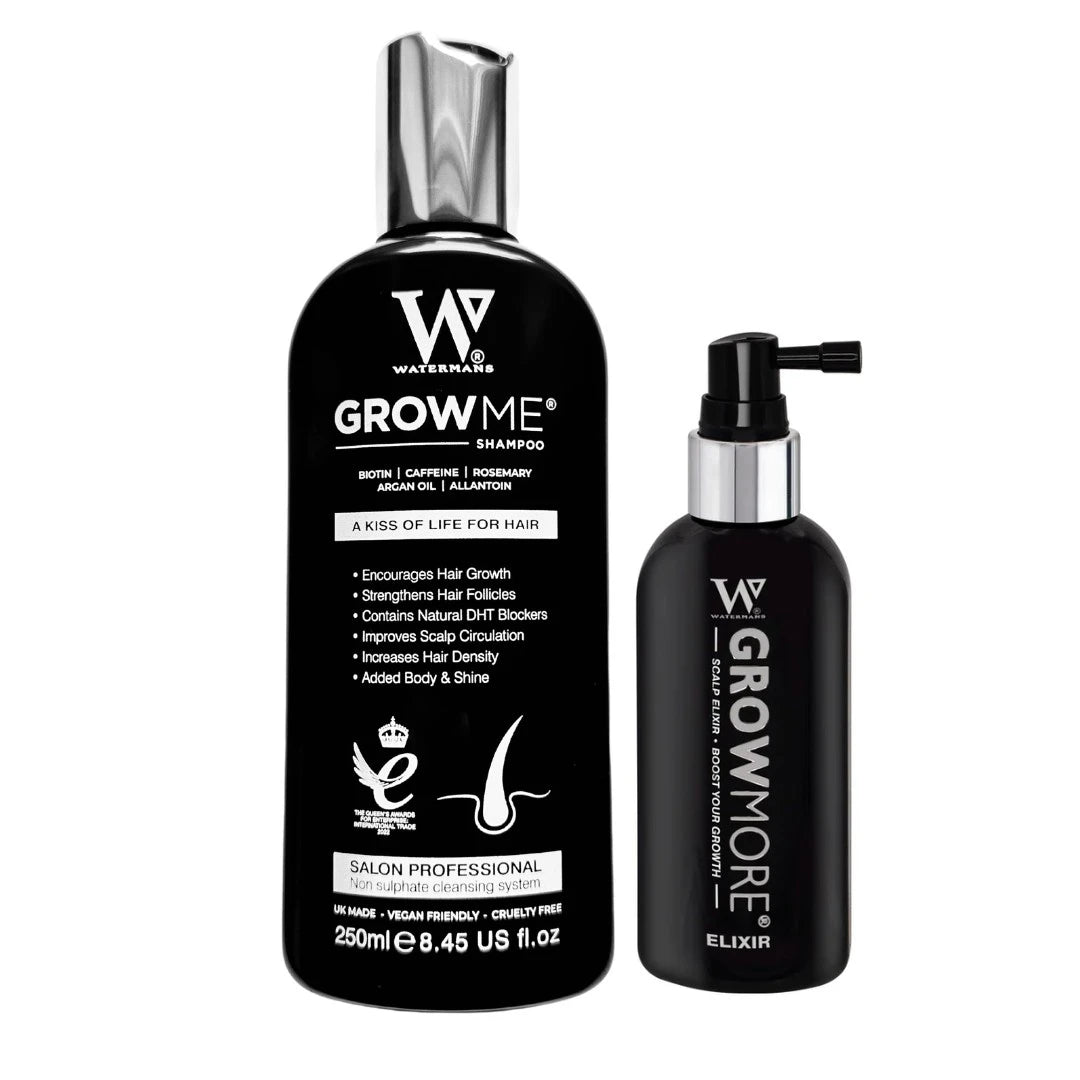
Unlocking the Mystery: Top Medical Reasons Your Hair Isn't Growing and How to Fix It

Hair growth interests many people. You may want to grow a pixie cut longer or add more fullness. Medical reasons make hair loss hard to fix. You feel upset when hair thins. You are not alone. We list top reasons that slow hair growth and list ways to care for your hair.
Understanding Hair Growth
Know how hair grows before you learn why it is lost. Hair has three phases. The growth phase (Anagen) builds hair. The change phase (Catagen) shifts its state. The rest phase (Telogen) lets hair pause. Each month, hair grows about half an inch. Many things can change this cycle.
Medical Reasons Your Hair Isn't Growing
1. Hormonal Changes
Hormones affect hair size. PCOS can unbalance hormones. That unbalance can thin hair or make it shed. Thyroid problems, whether low or high, may slow hair growth. When menopause drops estrogen, hair can thin. If you see signs, ask a doctor for care.
2. Nutritional Deficiencies
Good food helps hair grow. A lack of food vitamins can hurt it. Biotin helps keep hair strong. Eggs, nuts, and avocados have biotin. Iron builds hair. Red meat, spinach, and lentils give iron. Zinc and protein build healthy hair. If your food lacks these, talk with your doctor about supplements.
3. Stress and Mental Health
Stress hurts the body and hair. When stress is high, hair enters the rest phase too soon. Exercise can calm your mind. Yoga or deep breathing can help you relax. If you feel very low, a counselor can help.
4. Scalp Conditions
The scalp may have problems that hurt hair. Alopecia Areata makes smooth, bald spots. Psoriasis can harm your scalp and drop hair. Dandruff (Seborrheic Dermatitis) can make hair thin. A skin doctor can find the problem and tell you what to do.
5. Medications and Medical Treatments
Some drugs start hair loss. Chemotherapy for cancer often makes hair fall for a while. Some antidepressants may drop hair as a side effect. Blood thinners can also slow hair growth. If you think your drugs harm your hair, ask your doctor about change.
6. Genetics
Genes play a part in hair loss. Male or female pattern baldness can run in the family. If your kin had thin hair, you may see it too. Some treatments, like minoxidil, may slow this loss and help hair grow.
How to Promote Healthy Hair Growth
Now you know why hair may not grow. Here are ways to care for your hair.
Watermans Grow Me Shampoo
For a natural way to care for your hair, try the Watermans Grow Me Shampoo. This shampoo works at the roots to give hair more body. It has key parts like:
- Biotin to keep hair strong.
- Rosemary Oil to lift blood flow in the scalp.
- Caffeine to wake hair roots.
- Niacinamide to keep the scalp in good shape.
- Argan Oil & Allantoin to calm the skin.
- Lupin Protein to boost hair strength.
These parts work side by side to refresh your hair. This shampoo fits well in your hair care routine.
More Tips for Healthy Hair Growth
- Eat a balanced diet with vitamins and minerals.
- Drink plenty of water.
- Use heat tools less often.
- Massage your scalp to wake blood flow.
- Avoid tight hairstyles that pull on hair.
Did You Know?
- Up to 80% of men and 40% of women lose some hair by age 50.
- The season changes can shift hair growth. Some people drop more hair in fall or winter.
- The head has about 100,000 to 150,000 hair follicles, and losing 50–100 strands each day is normal.
Q&A Section
Q1: Is it normal to lose hair every day?
Yes. Losing 50–100 strands each day is normal.
Q2: Can hairstyles affect hair growth?
Yes. Tight styles can pull hair and cause loss over time.
Q3: How long does it take for hair to grow back after shedding?
It can take a few months to a year, depending on your hair and its cause.
Q4: Does shampoo affect hair growth?
Yes. A good shampoo like Watermans Grow Me Shampoo can keep your scalp healthy and wake hair growth.
Q5: When should I seek medical advice for hair loss?
See a doctor if you notice fast thinning or a lot of hair loss.
Q6: Can hair supplements really help?
Supplements with biotin, zinc, and needed vitamins may help keep hair strong. Results can vary.
Q7: Can pregnant women experience hair loss?
Yes. Hormone changes during and after pregnancy may cause hair loss for a time.
Q8: Is there a link between hair loss and age?
Yes. Many people see some hair loss as they grow older.
Q9: Can I reverse hair loss naturally?
Sometimes, good care, a strong diet, and using products like Watermans Grow Me Shampoo can help.
Q10: What are the risks of hair restoration procedures?
Risks vary with each treatment. Talk with a doctor to learn about the risks and gains.
Knowing why hair may not grow helps you care for it better. Fixing what you eat, the drugs you use, your stress levels, or your scalp's care can help your hair. Keep track of your hair and ask a doctor when needed. Use products like Watermans Grow Me Shampoo to care for your scalp and boost hair strength.













